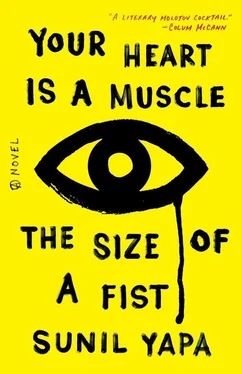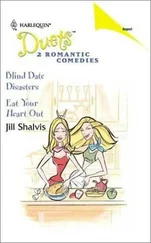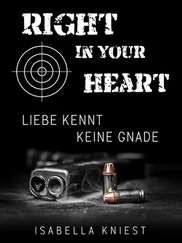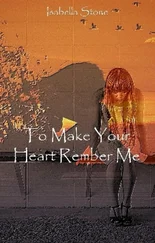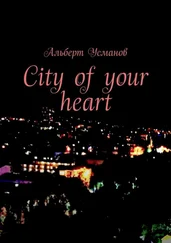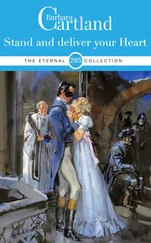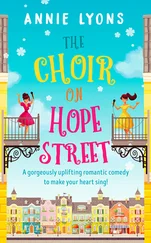“It’s easier if your head is down, Victor.”
He lowered his head, realizing in the same moment that it was King. The sudden sight of her made him want to cry. He had the overwhelming urge to say something, to do something, but what? To ask her for a hug?
She leaned over and soaked Victor’s pink bandanna — the one he’d gotten from the girl — in apple cider vinegar, and then lifted it to his nose and fixed it tight.
“King,” he said, his voice muffled. The smell of vinegar burning through his nostrils.
She bent to John Henry.
“King,” he said again.
On her knees in front of John Henry, did she hear him? Or did she just not care? She poured vinegar in the bandanna and then knotted it carefully around John Henry’s nose and mouth. Neither of them looking Victor’s way — in fact they were staring at each other, King and John Henry, lost in each other’s gaze, something passing there between them, and for all it mattered, it was as if Victor, although only inches away, had ceased to exist.
“He shouldn’t be here, King.”
She laid her hand against the side of his face.
“He’ll be fine.”
“He’s not trained and he’s not chanting and he will not be fine.”
And the crowd now chanting just one word, two syllables drawn out and forcefully expelled.
COURAGE
COURAGE
COURAGE
King turned back to Victor. She laid a hand upon his knee. He knew it was meant to be reassuring, but what he really wanted was her arms around him, pulling him tight, and it felt cold and perfunctory, the sort of nice little pat you give a stranger’s crying child.
“He’ll be fine,” she said. “Won’t you, Victor?”
He found himself dumbly nodding as if that were an answer to something. She watched him and then drew a pair of swimming goggles from a pocket. She slipped the band over his hair. Fastened the plastic fishbowls to his eyes.
“When the gas goes off,” she said, “don’t breathe too deep.”
And then she was gone, disappeared back into the crowd, tilting her bottle of vinegar into bandannas and tying them around people’s mouths and noses. Behind the Chief the cops were fondling their six-chambered tear gas launchers. Victor looked at his father there in front of the line taking a deep breath and he whispered beneath his bandanna, “Don’t do it. Please don’t do this.”
There was a can of pepper spray passing back and forth between his father’s hands and Victor wanted to ask him if he felt this same gaping emptiness opening beneath his throat, but he didn’t speak to the man. Three years and not a word.
COURAGE
COURAGE
COURAGE
The police raised their tear gas guns like a line of archers. Black barrels angled skyward at forty-five degrees. Victor watched his father finally remove his glasses and pull a black gas mask down over his face. He was a hundred feet out, and yet Victor imagined his father’s eyes were shiny behind the faceplate as if blinking back tears and Victor’s chest suddenly opening to a grief and loss he had never known existed.
Oh, Dad. How I’ve fucked things up.
COURAGE
COURAGE
COURAGE
Resonating in the cold morning damp, a chord composed of a thousand trembling voices rising and humming.
COURAGE
COURAGE
COURAGE
Then, with the solid kick of a bass drum, a thump that seemed to displace air, the cops fired. Above their heads the first cans rose in an arc and still he could not chant, could not even open his mouth. Just sat there and watched the canisters climb. They reached their zenith and began the descent, tumbling end over end like some strange satellites returning to Earth, trailing smoke. Falling straight toward him as if meant for him and him alone. Yes, Victor saw and he knew.
COURAGE
COURAGE
COURAGE
Here they came tumbling out of the sky with a message meant just for him, he could actually hear it, hear the voice in the smoke, in the canisters descending, the canisters that in about two seconds were going to reach their earthbound destination. About one second from now they would be landing in Victor’s lap, and he heard the message the smoke wanted to tell him, heard it as clearly as if his father knelt there on the cold concrete beside him, whispering in his ear.
“Son,” the smoke said, “care too much and the world will kill you cold.”
Dr. Charles Wickramsinghe
Intermission I
Twelve Hours Until the Meeting
Dr. Charles Wickramsinghe stepped from the noise of the terminal into the quiet of the cabin. A tall man, he bowed slightly to clear the door, gave a small smile to the business-class stewards. He was shy at times with the luxuries of importance, and so carried only his usual briefcase and overcoat. Uncomfortable with the insulation his diplomatic status conferred upon him, he refused to travel with staff, not even an assistant. “When I get too old to carry my own cases,” he had said five years ago when the negotiations began, “then it’s time to surrender.”
And yet, this year, turning seventy, the weight of the travel had begun to register somewhere beneath his skin, the negotiations softening the tough muscle of his heart, pulling on his bones with a whisper. Just once he would like to perform a miracle on a par with Gandhi’s. He will swim the island’s length and width, circumnavigate the coast, keep going until they all sign the bloody TRQs, the subsidy reductions, and then the final document itself. At a steady pace he will swim the sun down, he will swim the sun up, until they grant Sri Lanka’s entry to the WTO.
A stewardess stood at his elbow.
“Welcome, Minister,” she said. “Can I get you anything?”
“Just a cup of tea, please.”
Of course he was fantasizing about the swim: Sri Lanka’s coast was more than a thousand and a half kilometers. An island nation the size of Maine. He would not ever be swimming its length and breadth.
The stewardess took his overcoat and slid his briefcase into the closet. With the help of her outstretched arm, he lowered himself slowly to the seat.
“We’ll be in the air soon, Minister.”
Good. Still so much work to be done, even here so close to the final leg.
Five long years he had been at this, taking the meetings, slowly gathering the signatures. Forty countries in five years. Thirty-nine signatures. He wouldn’t have believed it himself had he not been there to witness it. To live it. To survive it. The flights close to three times a week for five years straight; the memories still humming through his body like a running river. He felt sometimes as if he had lived enough in the intervening years to account for another life, a second go-round. At his age a small miracle. The world, it seemed, was full of them. His life included. From colonial subject to globe-trotting minister. The tall brown man with mahogany skin and snow-white hair — he was recognized and welcomed by presidents and prime ministers. Chirac, Yeltsin, Blair. Juan Carlos the King of Spain, and his prime minister, María Aznar. He knew their faces all too well. The food-flecked chins, the jowls, the tired eyes. Like a tribe of people capable of manufacturing charm at will. And their leader, the elder brother of the toothy clan — Clinton, who he was set to meet tomorrow afternoon in Seattle. President Clinton — the very last signature he needed.
But god he feared that “no.” Export and trade. Making things to sell to the West. This was how Sri Lanka would feed its people in the new century, in the bright new age of the global economy.
They must open that door. Or I fear we will end up starving on its doorstep.
He sighed and warmed his hands on the tea the stewardess had brought him. He sipped from the cup and settled into the most recent batch of reports with a kind of tired, worried excitement: something about fuel oil tariffs from the Dutch. Another from the American State Department warning of possible protests. He scanned it and moved on, idly puzzling why anybody would want to protest the millennial meetings of the WTO.
Читать дальше
